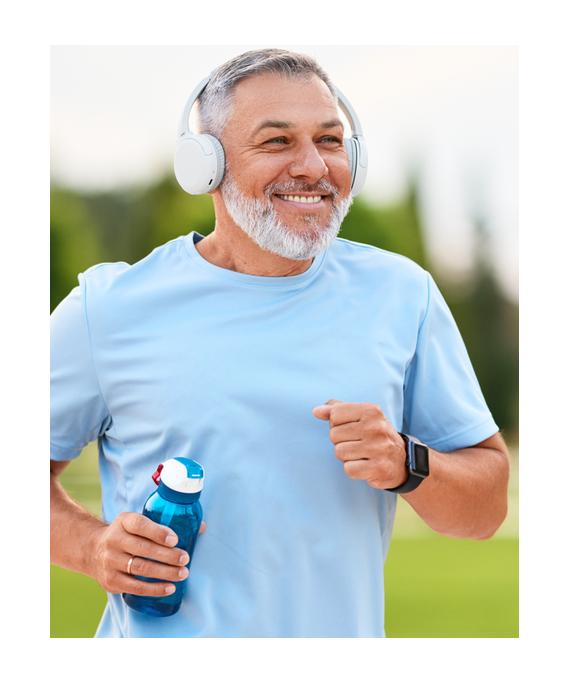DiaCare Top Tips


Top Tips from the DiaCare team to support you and your family.
There is a dual benefit to taking an oral hydration solution with a probiotic. Learn more from the DiaCare team.
The best defence against dehydration is prevention. However, we understand this is not always possible. Here are some simply tips to stay hydrated and healthy:
- – Drink small amounts regularly. If you wait until you are thirsty to drink, then you are mostly likely already dehydrated. Drink water steadily throughout the day. Remember to increase your water intake when the weather is hot or if you are exercising.
- – Add a flavour to your. Natural water is always the preferred choice. However, if your or your child finds plain water tastes boring, you can add some sugar-free fruit juice. You can also consume herbal tea, soup, ice pops or sports drinks (especially if you are exercising). Be mindful to limit caffeine and alcohol intake.
- – Consume water-rich vegetables and fruit. Where possible, select local and in season vegetables and fruit. Some vegetables and fruits naturally contain water as well as healthy nutrients. Vegetables high in water include leafy greens, cucumbers, celery and tomatoes. Strawberries, peaches, watermelon and pineapples are also high in water content.
- – Stay cool and indoors when it gets hot. When it is very hot outdoors, try to stay indoors and if possible, in an air-conditioned environment. For those who are active, try to organise outdoor activities in the early morning or evening.
- – Be aware of the signs of dehydration. If anyone in your family is unwell, remember to pay attention to how much fluids they are consuming, especially young children and the elderly. Anyone with a fever, diarrhoea or vomiting should drink plenty of fluids.
Oral rehydration therapy (ORT) is recommended as first-line therapy for both mildly and moderately dehydrated children and adults.
Oral rehydration is needed when there is a loss of body fluids. This can occur in children and adults suffering from the following;
- – Diarrhoea
- – Persisting vomit
- – Fevers accompanied by intense sweating.
- – After sports and exercise
- – Travel and hot climates
- – General good practice for staying hydration
There is a dual benefit to taking an oral hydration solution with a probiotic.
The oral hydration solution contains an electrolyte which tackles the problems of dehydration associated with diarrhoea, vomiting and fevers.
While the probiotic helps to swiftly restore gut health back to normal, provides immune support in the gastrointestinal tract and restores normal acidic pH of the stomach.
Symptoms may include diarrhoea, vomiting and abdominal pain. Fever, lack of energy and dehydration may also occur.
Symptoms can take between one and three days to develop and usually last between one and two days, sometimes longer.
Gastroenteritis is highly contagious. See our top tips for general suggestions on how to reduce the risk of infection.
- – Stay home while sick, until 48 hours after symptoms have stopped. If symptoms persist, visit your GP.
- – Wash hands thoroughly with soap and water after going to the toilet or changing nappies, after smoking, after using a handkerchief or tissue, or after handling animals.
- – Wash your hands thoroughly with soap and water before preparing food or eating.
- – Use disposable paper towels to dry your hands rather than cloth towels, since the bacteria can survive for some time on objects.
- – Do not handle raw and cooked foods with the same implements (tongs, knives, cutting boards), unless they have been thoroughly washed between uses.
- – Keep all kitchen surfaces and equipment clean.
- – Keep cold food cold (below 5 °C) and hot food hot (above 60 °C) to discourage the growth of bacteria.
- – Make sure foods are thoroughly cooked.
- – Clean kitchen tops, toys, toilet seats, nappy change tables and taps to ensure you don’t spread the infection to others at home.
- – Clean the toilet and bathroom regularly (especially the toilet seat, door handles and taps).
- – Clean baby change tables regularly.
- – When travelling overseas to countries where sanitation is suspect, only drink bottled water. Don’t forget to brush your teeth in bottled water too. Avoid food buffets, uncooked foods or peeled fruits and vegetables, and ice in drinks.
Note: Wash hands with soap and water as this is the best way to prevent infection. Alcohol-based hand sanitisers while effective against some viruses (such as Corona Virus), are not effective against gastroenteritis.
Certain times of the year, there is an increase in stomach bugs and viruses. While symptoms include nausea, diarrhoea and vomiting, the highly contagious norovirus is the most common stomach infection in Ireland. Giving the current situation, parents are obviously keen to keep their children safe, but it’s important to remember that other medical issues don’t go away just because coronavirus has come around. Children will still get sick.
There is nothing worse than a vomiting bug or diarrhoea. Gastroenteritis (or inflammation of the stomach lining) is most commonly caused by stomach bug – an infection you have picked up from either contaminated food, or from someone else who is sick. In some cases, you can have fever and muscle aches as well. These symptoms are a result of the body fighting the infection, which is why we see them in a range of different illnesses, such as the flue and Covid-19 too.
The same tips apply here as above for reducing the risk of catching or spreading Gastroenteritis?
One of the obvious and most important things is to maintain adequate hydration. However, sips of water are not sufficient. It is important to ensure we get salts and sugar back into our body too, especially if we are not eating and have a fever. While taking fluids, we need to be aware that we should be looking to keep the urine a clear pale colour. By using MyPro DiaCare, which contains a balance blend of glucose electrolytes, mineral and Lactobacillus Rhamnosus GG, we are restoring and repopulating the gut microbiota, which can be affected by the bug that causes the stomach upset in the first place.

